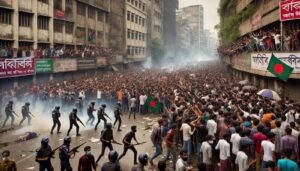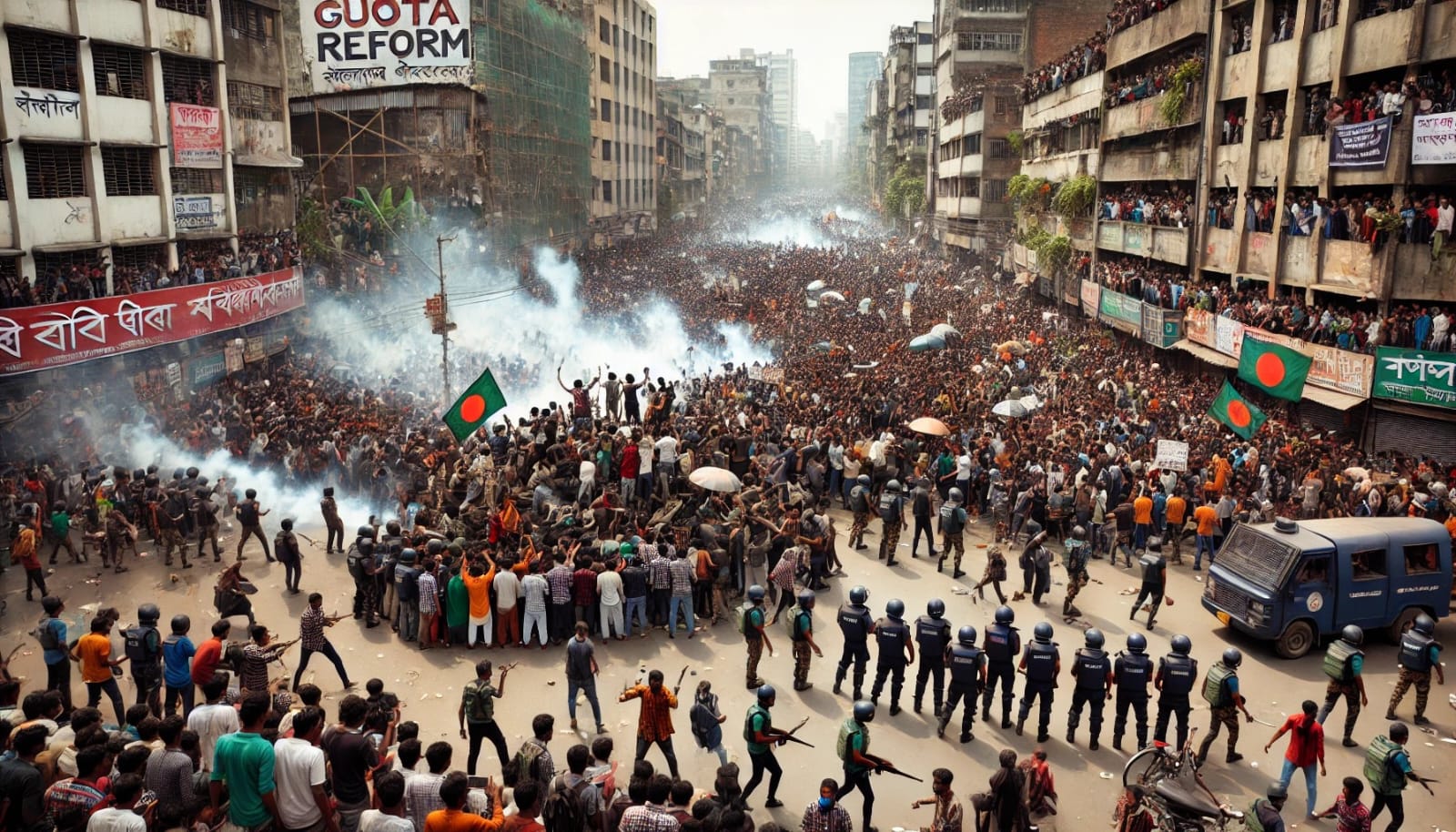CNN Central News & Network–ITDC India Epress/ITDC News Bhopal: The situation in Bangladesh remains volatile and complex, marked by extensive protests and a s severe government crackdown. The protests, primarily led by students, are demanding the abolition of a 30% quota in government jobs reserved for the families of 1971 war veterans. This movement has escalated into significant civil unrest, with reports of over 200 deaths and numerous injuries due to clashes between protesters and security forces.
In response to the escalating violence, the Bangladeshi government has implemented strict measures, including nationwide curfews and a partial internet shutdown, particularly affecting social media platforms like Facebook and WhatsApp. The curfews and movement restrictions are enforced by the army, which has been given authority to shoot violators in an effort to control the violence.

The unrest has also disrupted daily life significantly. Educational institutions have been closed indefinitely, and transport services, including rail and long-distance buses, have been severely impacted. While some mobile internet services have been restored, access to social media remains restricted to prevent the spread of unrest.
Adding to the political turmoil, Prime Minister Sheikh Hasina fled to India amid the intensifying protests and demands for her resignation. The situation has led to international travel advisories against nonessential travel to Bangladesh
The protests have seen violent confrontations, with reports of arson, vandalism, and attacks on government and private properties. The government’s response has involved mass arrests and the use of significant force, including tear gas, rubber bullets, and live ammunition to disperse the demonstrators
This ongoing crisis in Bangladesh underscores deep-seated issues related to job reservations, political governance, and civil liberties, with both sides remaining in a tense standoff as the situation develops.







